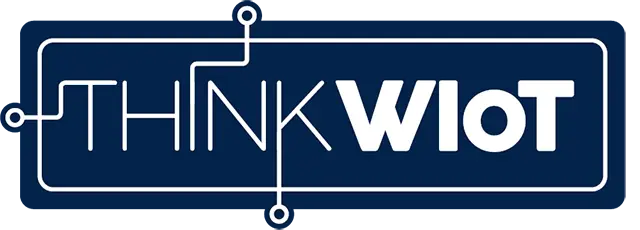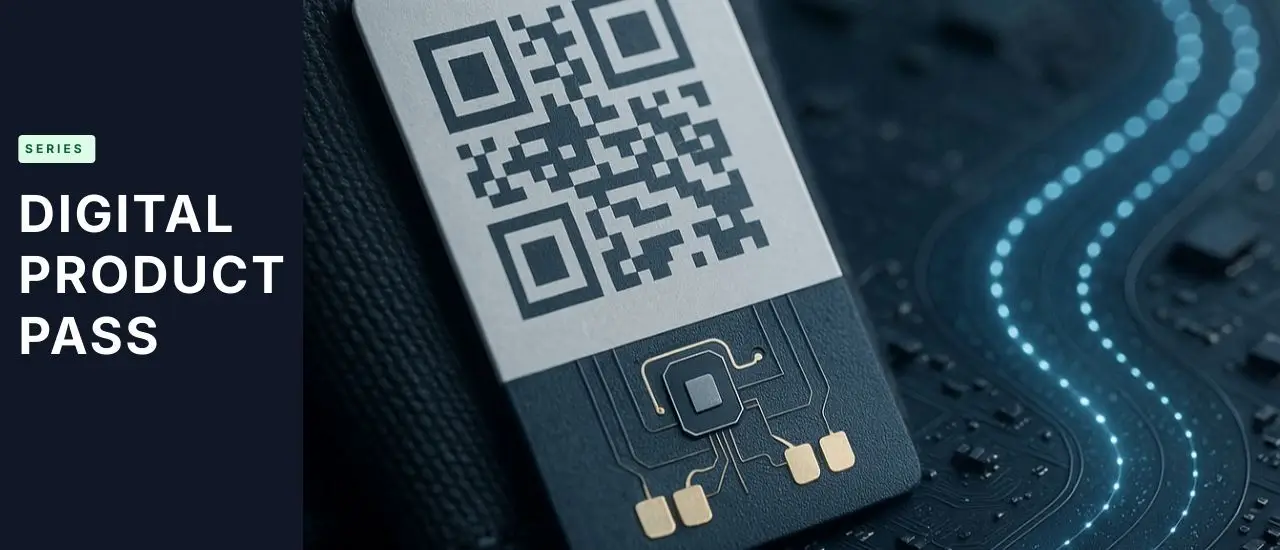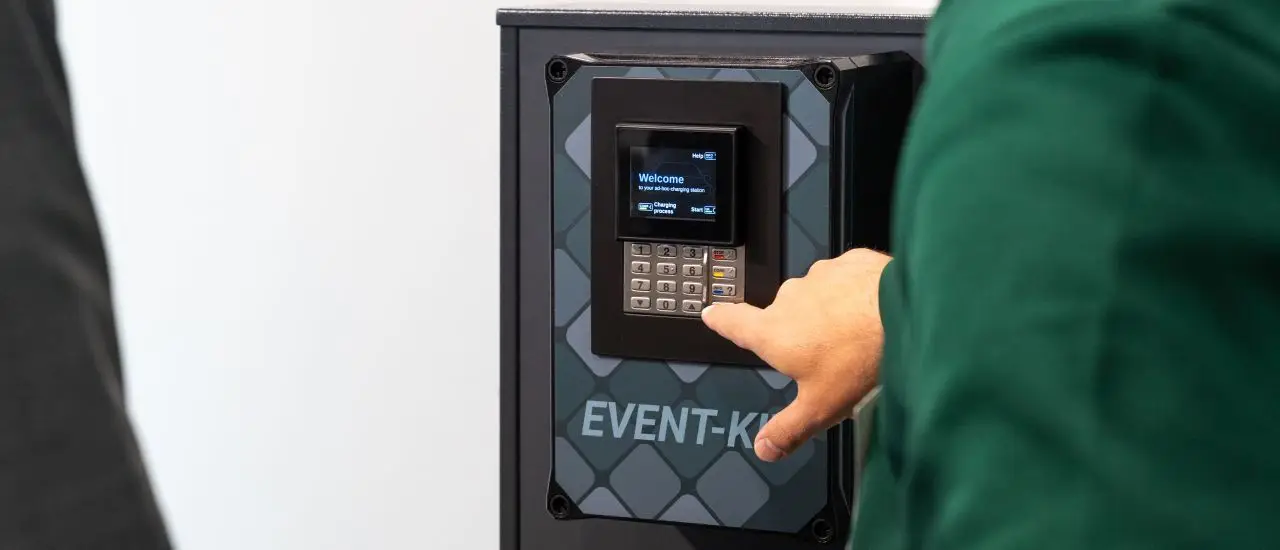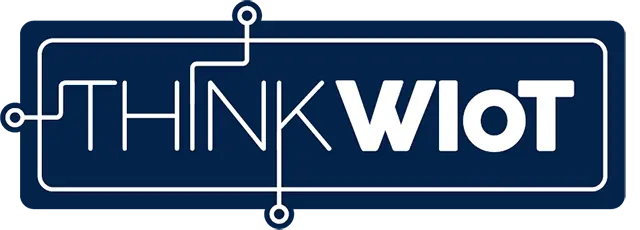Material as a Service
Procurement Service Provider for the Construction Industry

Construction and shipbuilding companies and their employees are ProMart's primary customers.
ProMart is a Finnish wholesaler of construction equipment and tools. Founded by Sampo Säily in 2009, the company's first customers were industrial companies in the Pirkanmaa region. In the second business year, Sampo's brother Ilkka Säily joined the company. He had close contacts in the construction industry. As a result, the focus shifted towards construction.
In 2019, the decision was made to offer automated stores. Today, ProMart supplies cdifferent manufacturing industries as well as construction companies.
The company operates exclusively in Finland. There are 5.5 million inhabitants living in an area of 340,000 km². The population density is one of the lowest in Europe. In sparsely populated areas, supply is more difficult. However, thanks to RFID technology, the company brings autonomous self-service stores close to customers. The stores are located directly on construction sites or in shipyards.
ProMart is a Finnish wholesaler of construction equipment and tools. Founded by Sampo Säily in 2009, the company's first customers were industrial companies in the Pirkanmaa region. In the second business year, Sampo's brother Ilkka Säily joined the company. He had close contacts in the construction industry. As a result, the focus shifted towards construction.
In 2019, the decision was made to offer automated stores. Today, ProMart supplies cdifferent manufacturing industries as well as construction companies.
The company operates exclusively in Finland. There are 5.5 million inhabitants living in an area of 340,000 km². The population density is one of the lowest in Europe. In sparsely populated areas, supply is more difficult. However, thanks to RFID technology, the company brings autonomous self-service stores close to customers. The stores are located directly on construction sites or in shipyards.

Construction and shipbuilding companies and their employees are ProMart's primary customers.
RFID Takes Self-Service to the Next Level
PROMART OY (LTD.)
- Year founded: 2009
- Founder: Sampo Säily
- Turnover: 27 million € (2021)
- Employees: 82
- Number of EasyMarts: Varies, but > 12
Unmanned stores have been around in Northern Europe for many years. The first unmanned store in Sweden opened in 2016, and during this time there were also many such stores in China and the USA. However, these did not meet customer requirements.
The challenge was to simplify the payment process, which is exactly what the RFID solution from Turck Vilant Systems does. With this solution, the new store concept was successfully implemented. The result is the EasyMart. This works according to the self-service concept. Payment is made automatically when shopping.
Unmanned stores have been around in Northern Europe for many years. The first unmanned store in Sweden opened in 2016, and during this time there were also many such stores in China and the USA. However, these did not meet customer requirements.
The challenge was to simplify the payment process, which is exactly what the RFID solution from Turck Vilant Systems does. With this solution, the new store concept was successfully implemented. The result is the EasyMart. This works according to the self-service concept. Payment is made automatically when shopping.
PROMART OY (LTD.)
- Year founded: 2009
- Founder: Sampo Säily
- Turnover: 27 million € (2021)
- Employees: 82
- Number of EasyMarts: Varies, but > 12
Self-Service Markets
Autonomous Markets for Industry
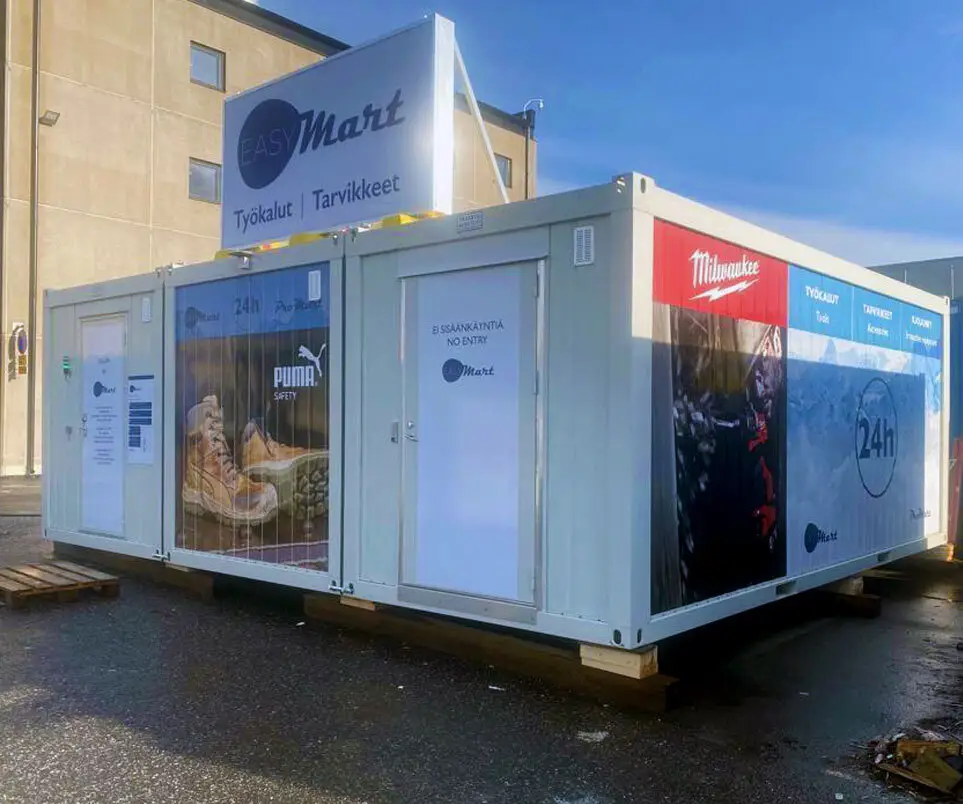
The EasyMart in the shipping container is located directly on the shipyard premises.
Standard ISO shipping containers provide the space for the EasyMarts. ProMart sets these up on construction sites and in shipyards. The store itself has a modular design. It is divided into a shopping area and a collection area.
In the former, products are available. The latter is a modular chamber connected to the shopping area. The payment process takes place in the latter. RFID readers can be installed in both areas.
Customized Product Range
Depending on its size, an EasyMart has hundreds to thousands of RFID-tagged products. In total, ProMart sells over 20,000 items from various manufacturers as well as its own brand Kranit.
These include tools, construction equipment and accessories, fasteners, chemicals, and protective equipment. The company creates the store inventory of each EasyMart in consultation with customers.
Standard ISO shipping containers provide the space for the EasyMarts. ProMart sets these up on construction sites and in shipyards. The store itself has a modular design. It is divided into a shopping area and a collection area.
In the former, products are available. The latter is a modular chamber connected to the shopping area. The payment process takes place in the latter. RFID readers can be installed in both areas.
Customized Product Range
Depending on its size, an EasyMart has hundreds to thousands of RFID-tagged products. In total, ProMart sells over 20,000 items from various manufacturers as well as its own brand Kranit.
These include tools, construction equipment and accessories, fasteners, chemicals, and protective equipment. The company creates the store inventory of each EasyMart in consultation with customers.

The EasyMart in the shipping container is located directly on the shipyard premises.
Automated Replenishment Control
There is a link between the point of sale and the merchandise management system. ProMart sets upper and lower limits for each product. Entries of purchased, rented or leased items in the inventory list are made automatically.
In the event of a product shortage, the system sends a warning. This triggers a replenishment order to the central warehouse. There, workers attach RFID tags to the goods. Weekly deliveries guarantee high product availability in the stores.
Automated Shopping
Shopping in the Self-Service Market
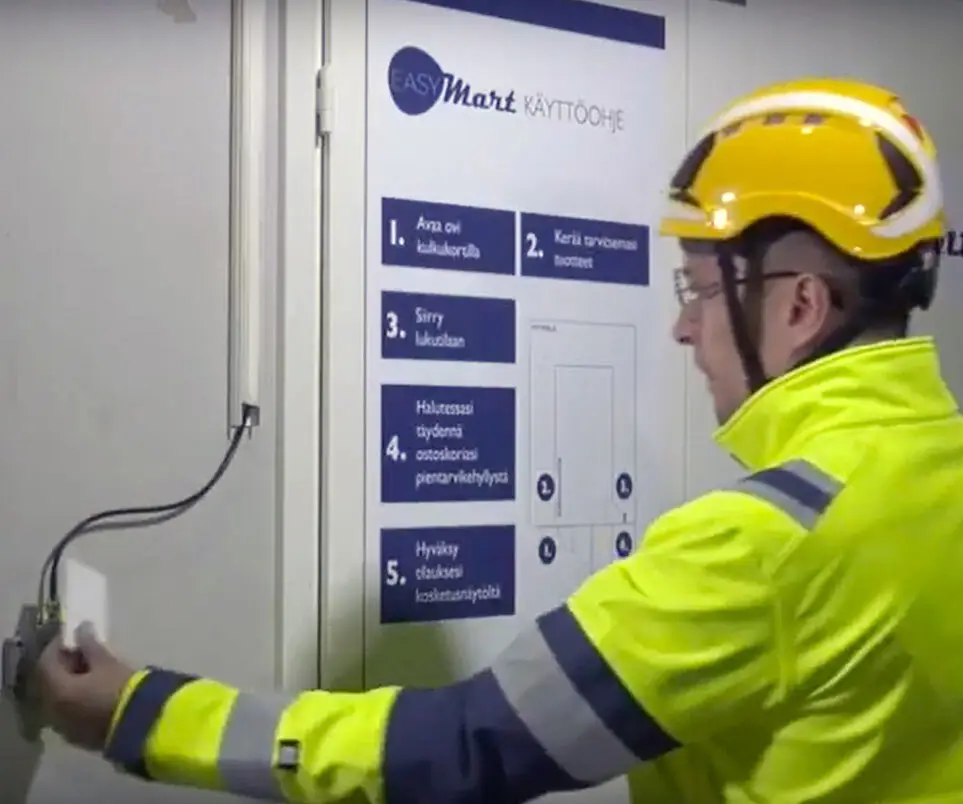
Access to the EasyMart works via RFID card.
Access to the EasyMart works by means of RFID. Customers identify themselves at the entrance with an RFID card and enter the shopping area. This opens a virtual shopping basket which is linked to the customer's company account. The system allows access to only one customer at a time.
Automatic Payment Process
The customer selects items to buy, lease or rent. He then enters the reading area with the products where he identifies himself again with the RFID card. He places the goods on a table. An RFID reader captures their unique IDs. The customer then leaves the store with the products. The system automatically settles the purchase with the linked company account.
Access to the EasyMart works by means of RFID. Customers identify themselves at the entrance with an RFID card and enter the shopping area. This opens a virtual shopping basket which is linked to the customer's company account. The system allows access to only one customer at a time.
Automatic Payment Process
The customer selects items to buy, lease or rent. He then enters the reading area with the products where he identifies himself again with the RFID card. He places the goods on a table. An RFID reader captures their unique IDs. The customer then leaves the store with the products. The system automatically settles the purchase with the linked company account.

Access to the EasyMart works via RFID card.
"Ensuring the functionality of the reading area was the biggest challenge. The readers must only detect the selected products and for that customer only. Thus each EasyMart has a separate read zone that allows entry to a single person at the time. This way we ensure only their items are registered for their basket. Tests show that the system works one hundred percent."
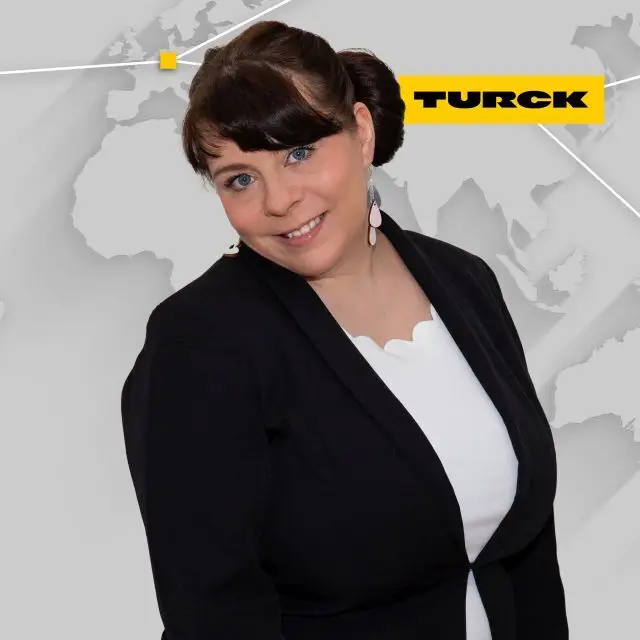
Shopping Without Language Barriers
The customer base in the shipbuilding and construction industry is increasingly using digital tools. In response to this, ProMart is also digitizing its services. A high level of user-friendliness is particularly important.
The subcontractors at Finnish construction sites and shipyards often include international companies, whose employees may not speak English or Finnish. Nevertheless, you can shop at EasyMart without having to know these languages.
Benefits of Autonomous Markets
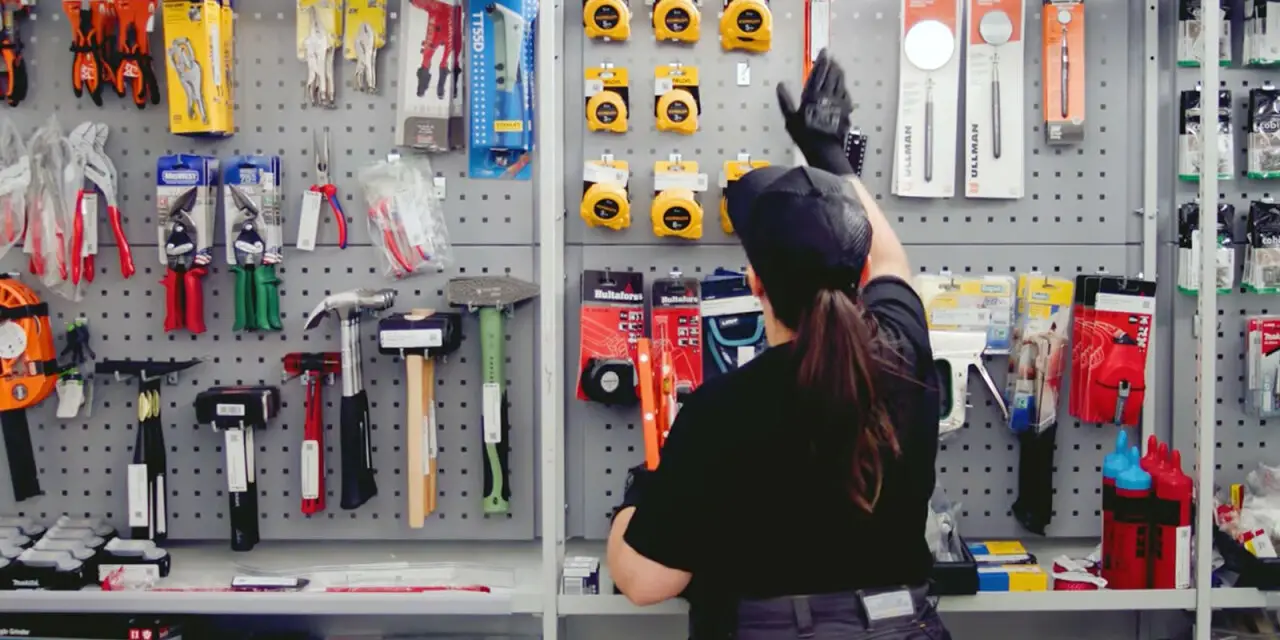
In-store personnel are only required for replenishing goods. Customers benefit from high product availability and easy shopping around the clock.
Self-Service Increases Customer Satisfaction
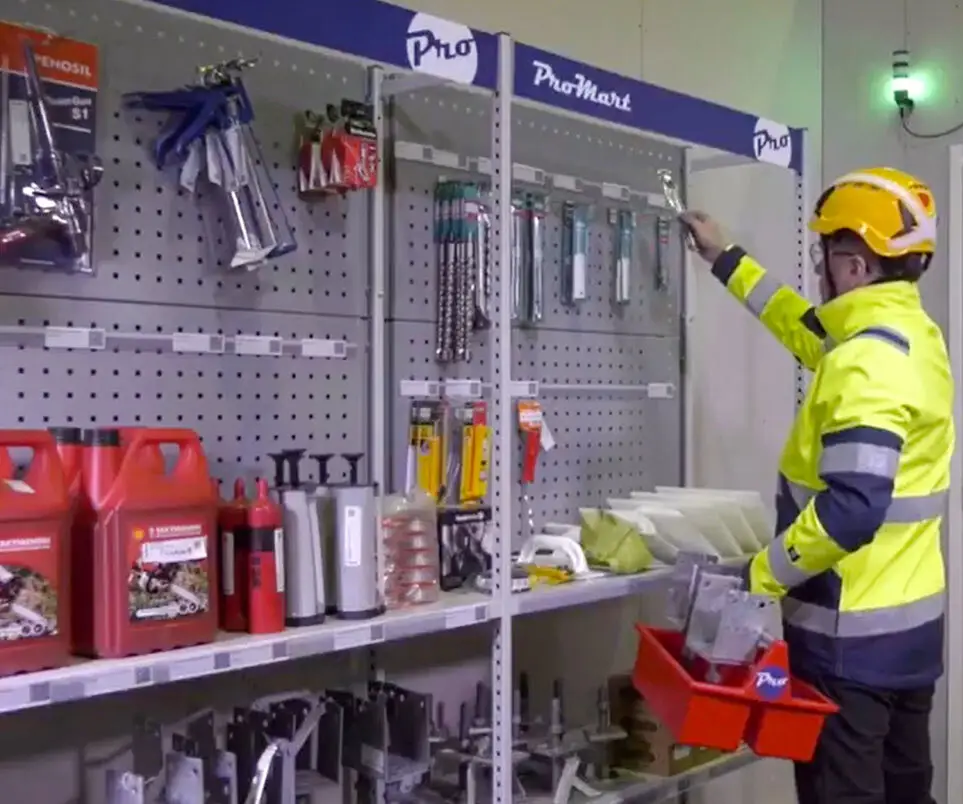
Improved customer satisfaction is the main benefit of the RFID solution. At the same time, ProMart is opening up new sales areas with the business concept.
An EasyMart can serve between ten and one hundred customers. It is also possible to set up an EasyMart for a single large customer. At shipyards, for example, an EasyMart can serve dozens of users. These benefit from the customized product range, high product availability around the clock, and the simple payment process.
Outsourcing materials procurement to ProMart also reduces costs for construction companies.
In addition, a certain percentage of healthcare workers face situational threats and verbal aggression. Most of these incidents originate from patients and visitors. Healthcare workers most affected by violence are those directly involved in patient care, such as nurses, emergency room staff, and paramedics.
The company has received positive feedback for the autonomous markets: "Customers are particularly enthusiastic about the user-friendliness. This is a good thing, because that was our goal. For this reason, we have decided to name our autonomous stores 'EasyMart'."
The establishment of an autonomous self-service market makes sense mainly for large companies due to the high investment costs. Construction sites and shipyards, where many companies have the same needs, benefit most from the EasyMart.
An EasyMart can serve between ten and one hundred customers. It is also possible to set up an EasyMart for a single large customer. At shipyards, for example, an EasyMart can serve dozens of users. These benefit from the customized product range, high product availability around the clock, and the simple payment process.
Outsourcing materials procurement to ProMart also reduces costs for construction companies.
In addition, a certain percentage of healthcare workers face situational threats and verbal aggression. Most of these incidents originate from patients and visitors. Healthcare workers most affected by violence are those directly involved in patient care, such as nurses, emergency room staff, and paramedics.
The company has received positive feedback for the autonomous markets: "Customers are particularly enthusiastic about the user-friendliness. This is a good thing, because that was our goal. For this reason, we have decided to name our autonomous stores 'EasyMart'."
The establishment of an autonomous self-service market makes sense mainly for large companies due to the high investment costs. Construction sites and shipyards, where many companies have the same needs, benefit most from the EasyMart.

Improved customer satisfaction is the main benefit of the RFID solution. At the same time, ProMart is opening up new sales areas with the business concept.
Autonomous Markets and Omnichannel
ProMart expands the sales area through the autonomous stores. The modular design allows them to be set up anywhere. Thanks to RFID, no staff is required at the stores. Only product labeling and replenishment require employees. The business model is profitable even with a small number of customers.
The EasyMart is one of three ways customers can shop at ProMart. A mobile shopping app and an online store complete the range of services. ProMart's development of the autonomous stores goes back to a specific customer request. In the meantime, the business concept has become an essential part of ProMart's omnichannel strategy.
Interview with Jessica Säilä
RFID-Enabled Self-Service Concepts appeal to Customers Thanks to Autonomy
Jessica Säilä explains how autonomous markets with RFID, that are close to the customer, simplify material procurement for international construction projects.
Interview

Jessica Säilä is Head of Marketing at Turck Vilant Systems.
1. ProMart has implemented the EasyMart with an RFID solution from Turck Vilant Systems. What were the challenges from your point of view?
We knew that the solution had to enable a smooth payment process. To achieve this, the reading area must function without errors. We had to make sure that the read zone remains closed while the tags are being captured and that incorrect readings do not occur. We indicate this with a traffic light.
This way, all shoppers in the store know that they must wait for the lamp to turn green before they may enter the read zone. The solution overcomes all these challenges.
2. Was RFID the only viable technology for this solution?
Barcode was another possibility. However, this technology is not as intuitive to use as RFID. This is an important difference. The users of our RFID store solutions are often international and lack a common language. RFID has two major benefits over barcodes: firstly it requires no action on the part of the user.
Secondly, it provides an element of security. The only way out of the store is through the read zone. It would be easy not to scan every item, but the RFID tag on all products carried by the customer is automatically scanned can captured by the readers. This ensures all items are registered as purchased.
Based on different user experiences from our RFID stores, I can also tell that they have minimal issues concerning loss. We believe it is because the users do not pay for the purchases from their own pockets. Billing is automatic, as their company gets invoiced for all purchases. This way, there is no element of personal gain, and forgetting to pay is impossible, as is theft.
3. What other advantages does the RFID solution offer apart from simplified shopping?
ProMart studied the time it takes to procure materials for a company. They found that if two workers had to make three tours, each lasting an hour, the material procurement would cause hidden costs of 300 euros per tour, twice a week. This is based on average drive times to and from the construction sites of their customers.
Calculated over the year, the costs added up to 30,000 euros. With EasyMart, material procurement is far more time and cost efficient.
4. Are unmanned stores with RFID a profitable investment for companies of any size?
I would like to say yes to this question. However, the costs are still too high for the smallest companies. Replenishment costs add a percentage to the price of products in EasyMart. Large companies can offset these.
The same applies to construction sites or shipyards with several companies. They benefit from the EasyMart. Additionally, different VMI (vendor managed inventory) systems are getting more and more popular. It doesn't always need to be a full store. Smart cabinets and smart shelves can also solve part of this problem.
5. How are customers reacting to the solution?
Customers really appreciate the simplicity. When everything works in Finland, customers tend to behave quietly. Quiet means that everyone is satisfied. Neither ProMart nor Turck Vilant Systems have heard any complaints. That's how we know that everything is running smoothly.
1. ProMart has implemented the EasyMart with an RFID solution from Turck Vilant Systems. What were the challenges from your point of view?
We knew that the solution had to enable a smooth payment process. To achieve this, the reading area must function without errors. We had to make sure that the read zone remains closed while the tags are being captured and that incorrect readings do not occur. We indicate this with a traffic light.
This way, all shoppers in the store know that they must wait for the lamp to turn green before they may enter the read zone. The solution overcomes all these challenges.
2. Was RFID the only viable technology for this solution?
Barcode was another possibility. However, this technology is not as intuitive to use as RFID. This is an important difference. The users of our RFID store solutions are often international and lack a common language. RFID has two major benefits over barcodes: firstly it requires no action on the part of the user.
Secondly, it provides an element of security. The only way out of the store is through the read zone. It would be easy not to scan every item, but the RFID tag on all products carried by the customer is automatically scanned can captured by the readers. This ensures all items are registered as purchased.
Based on different user experiences from our RFID stores, I can also tell that they have minimal issues concerning loss. We believe it is because the users do not pay for the purchases from their own pockets. Billing is automatic, as their company gets invoiced for all purchases. This way, there is no element of personal gain, and forgetting to pay is impossible, as is theft.
3. What other advantages does the RFID solution offer apart from simplified shopping?
ProMart studied the time it takes to procure materials for a company. They found that if two workers had to make three tours, each lasting an hour, the material procurement would cause hidden costs of 300 euros per tour, twice a week. This is based on average drive times to and from the construction sites of their customers.
Calculated over the year, the costs added up to 30,000 euros. With EasyMart, material procurement is far more time and cost efficient.
4. Are unmanned stores with RFID a profitable investment for companies of any size?
I would like to say yes to this question. However, the costs are still too high for the smallest companies. Replenishment costs add a percentage to the price of products in EasyMart. Large companies can offset these.
The same applies to construction sites or shipyards with several companies. They benefit from the EasyMart. Additionally, different VMI (vendor managed inventory) systems are getting more and more popular. It doesn't always need to be a full store. Smart cabinets and smart shelves can also solve part of this problem.
5. How are customers reacting to the solution?
Customers really appreciate the simplicity. When everything works in Finland, customers tend to behave quietly. Quiet means that everyone is satisfied. Neither ProMart nor Turck Vilant Systems have heard any complaints. That's how we know that everything is running smoothly.

Jessica Säilä is Head of Marketing at Turck Vilant Systems.




